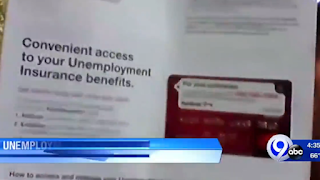According to the FBI, they have monitored a sudden increase in fraudulent unemployment insurance claims complaints that is related to the ongoing COVID-19 pandemic in which the scammers are using stolen personally identifiable information (PII).
They said that U.S. citizens from different states have fall victim to this scam in which the impersonators are using their stolen identities to submit fraudulent unemployment insurance claims online. The criminals are using different techniques to steal identities like buying stolen PII, previous data breaches, computer intrusions, cold-calling victims while using impersonation scams, email phishing schemes, physical theft of data from individuals or third parties, and from public websites and social media accounts. The criminal uses third parties or persuade individuals who are victims of other scams or frauds to transfer fraudulent funds to accounts controlled by criminals.
A lot of the victims of the identity theft related to unemployment insurance claims have no idea that they have been victimized until they try to file a claim for unemployment insurance benefits, receive a notification from the state unemployment insurance agency, receive an IRS Form 1099-G showing the benefits collected from unemployment insurance, or get notified by their employer that a claim has been filed while the victim is still employed.
The FBI advises the public to be on the lookout for the following suspicious activities:
- Receiving communications regarding unemployment insurance forms when you have not applied for unemployment benefits
- Unauthorized transactions on your bank or credit card statements related to unemployment benefits
- Any fees involved in filing or qualifying for unemployment insurance
- Unsolicited inquires related to unemployment benefits
- Fictitious websites and social media pages mimicking those of government agencies
Tips on how to protect yourself:
- Be wary of telephone calls and text messages, letters, websites, or emails that require you to provide your personal information or other sensitive information, especially birth dates and Social Security numbers. Be cautious with attachments and embedded links within email, especially from an unknown email sender.
- Make yourself aware of methods fraudsters are using to obtain PII and how to combat them by following security tips issued by the Cybersecurity and Infrastructure Security Agency, including:
- Avoiding Social Engineering and Phishing Attacks
- Protecting Against Malicious Code
- Preventing and Responding to Identity Theft
- Monitor your bank accounts on a regular basis and request your credit report at least once a year to look for any fraudulent activity. If you believe you are a victim, review your credit report more frequently.
- Immediately report unauthorized transactions to your financial institution or credit card provider.
- If you suspect you are a victim, immediately contact the three major credit bureaus to place a fraud alert on your credit records. Additionally, notify the Internal Revenue Service by filing an
- Identity Theft Affidavit (IRS Form 14039) through irs.gov or identitytheft.gov.

ABKONCORE 100% Mechanical Hot Swap Keyboard K595 $27.19

Midea Smart 3-in-1 Portable Air Conditioner, Dehumidifier, Fan for Small Rooms up to 200 sq ft $349.99

TACKLIFE T8 800A Peak 18000mAh Car Jump Starter $59.49

No comments:
Post a Comment